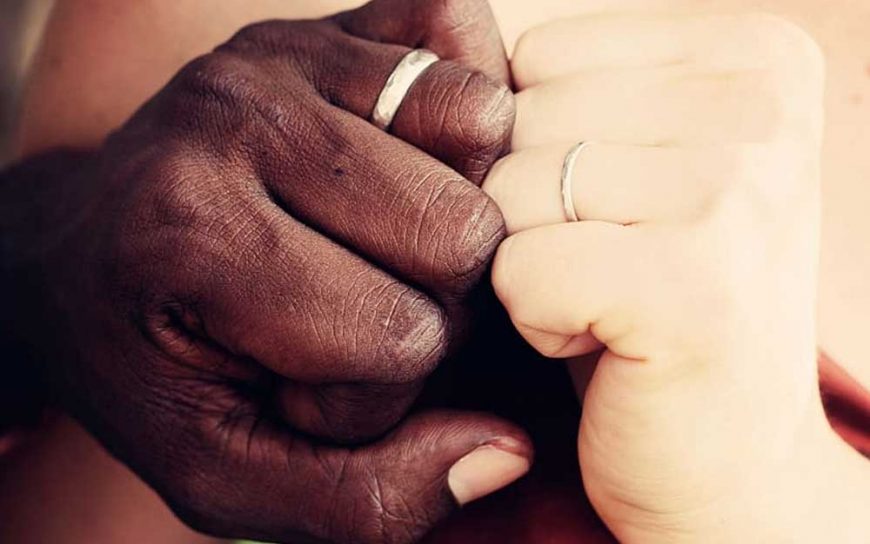Parent’s and Child’s Interracial Marriage in Brazil: An Analysis of Intermarriage as an Intergenerational Transmission Process
This article investigates interracial marriage as part of a social reproduction process, looking at to what extent parental endogamy influences the endogamy of a child and how parental race affects the race of a child’s spouse. Data from the Brazilian Social Survey (PESB) for the year 2002 and logit models are used. The characteristics of parental union may influence the choice of a child’s partner through different mechanisms: i) socialization, ii) structural aspects of the individual’s marriage market, and iii) direct parental influence regarding partner choice. The results show that, on average, children of racially endogamous couples are about 78.8% more likely to be in an endogamous union themselves than in a racially exogamous marriage. Parental education is also significant. This means that higher parental education leads to an increased probability of an endogamous union. The results by type of parental union show that parental race matters only for exogamous couples, and an individual’s own race is more relevant among children of endogamous parents. The results for the analysis of parental race and the race of a child’s spouse show that having non-white parents decreases the probability of a child marrying a white spouse. For this specific case, parental education is not statistically significant. These results reinforce the race hierarchy in the process of racial assortative mating, when considering an individual’s own race and the race of their parents. The aspect of the intergenerational transmission of racial endogamy, as it relates to partner choice, is also clarified.
Population Review
Volume 59, Number 1, 2020
Type: Article, pp. 26-55
Parent’s and Child’s Interracial Marriage in Brazil: An Analysis of Intermarriage as an Intergenerational Transmission Process[1]
Author: Maria Carolina Tomás
Affiliations: Pontifical Catholic University of Minas Gerais
Corresponding author/address:
email: mctomas@pucminas.br
Abstract
This article investigates interracial marriage as part of a social reproduction process, looking at to what extent parental endogamy influences the endogamy of a child and how parental race affects the race of a child’s spouse. Data from the Brazilian Social Survey (PESB) for the year 2002 and logit models are used. The characteristics of parental union may influence the choice of a child’s partner through different mechanisms: i) socialization, ii) structural aspects of the individual’s marriage market, and iii) direct parental influence regarding partner choice. The results show that, on average, children of racially endogamous couples are about 78.8% more likely to be in an endogamous union themselves than in a racially exogamous marriage. Parental education is also significant. This means that higher parental education leads to an increased probability of an endogamous union. The results by type of parental union show that parental race matters only for exogamous couples, and an individual’s own race is more relevant among children of endogamous parents. The results for the analysis of parental race and the race of a child’s spouse show that having nonwhite parents decreases the probability of a child marrying a white spouse. For this specific case, parental education is not statistically significant. These results reinforce the race hierarchy in the process of racial assortative mating, when considering an individual’s own race and the race of their parents. The aspect of the intergenerational transmission of racial endogamy, as it relates to partner choice, is also clarified.
Keywords
Parental race, endogamy, interracial marriage, Brazil
© 2020 Sociological Demography Press
[1] The author is thankful to the anonymous reviewer and to the journal’s editors for their comments that greatly improved the paper.
MLA
Tomás, Maria Carolina. “Parent’s and Child’s Interracial Marriage in Brazil: An Analysis of Intermarriage as an Intergenerational Transmission Process.” Population Review, vol. 59 no. 1, 2020. Project MUSE muse.jhu.edu/article/751911.
APA
Tomás, M.C. (2020). Parent’s and Child’s Interracial Marriage in Brazil: An Analysis of Intermarriage as an Intergenerational Transmission Process. Population Review 59(1), https://www.muse.jhu.edu/article/751911.
Chicago
Tomás, Maria Carolina. “Parent’s and Child’s Interracial Marriage in Brazil: An Analysis of Intermarriage as an Intergenerational Transmission Process.” Population Review 59, no. 1 (2020) https://www.muse.jhu.edu/article/751911.
Endnote
TY – JOUR T1 – Parent’s and Child’s Interracial Marriage in Brazil: An Analysis of Intermarriage as an Intergenerational Transmission Process A1 – Tomás, Maria Carolina JF – Population Review VL – 59 IS – 1 PY – 2020 PB – Sociological Demography Press SN – 1549-0955 UR – https://muse.jhu.edu/article/751911 N1 – Volume 59, Number 1, 2020 ER –
Always review your references for accuracy and make any necessary corrections before using. Pay special attention to personal names, capitalization, and dates. Consult your library for more information on citing sources.




